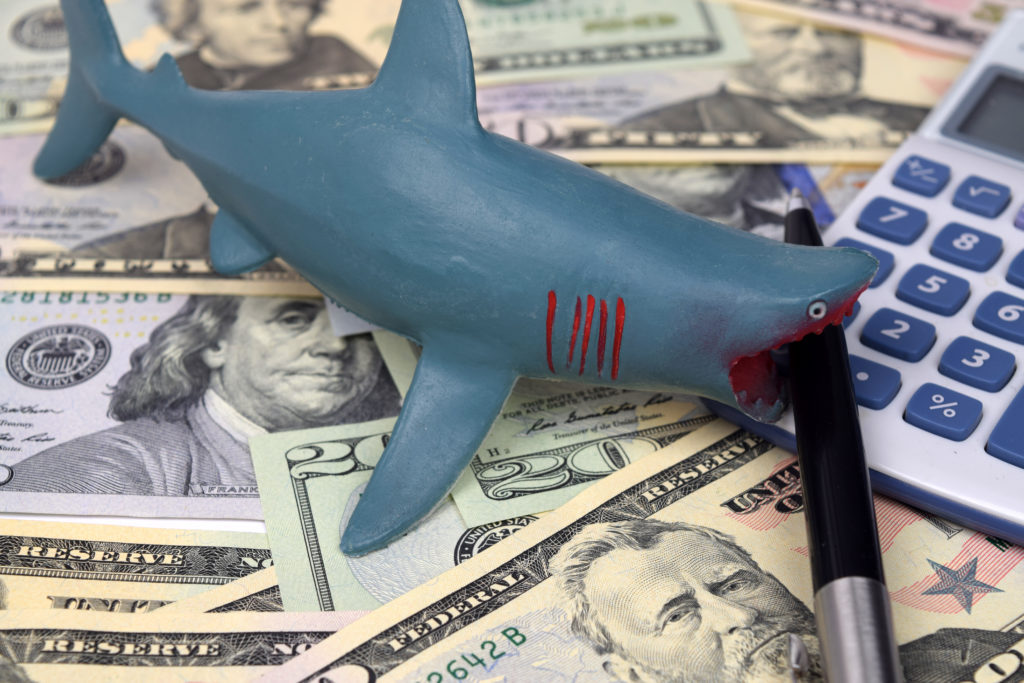Lawmakers in Augusta have done good work in recent years to begin curbing predatory payday lenders from saddling Mainers with crushing, unfair debt. Now, they have an opportunity to continue strengthening consumer financial protections in Maine.
Payday loan debt can shatter a family’s financial stability, and the aggregate weight of this debt saps our economy. A new bill before the Legislature this year — LD 522, An Act to Cap Interest Rates for Consumer Debt — would eliminate a loophole in Maine’s consumer code regulating payday and other small dollar loans that allows lenders to assess interest and fees exceeding 200 percent.
What are payday loans?
Payday loans are made for small amounts of money on a short-term basis, usually 1-2 weeks, traditionally to tide borrowers over until they got their next paycheck. Payday loans are a costly way to borrow money. Unlike auto, education, or mortgage debt, these loans often leave borrowers worse off than they were before they took out the loan.
Because borrowers turn to payday loans in moments of need to cover basic, necessary expenses, the risk for predatory practices is high. When Mainers need money to avoid eviction, for example, predatory lenders have a huge advantage to impose unfair, costly terms that leave borrowers trapped in a cycle of debt.
It’s important to note that payday lenders are not regulated the same way as banks or even credit card companies. Payday loan borrowers must give the lender their bank account information for automatic withdrawal of the payment upon the due date. If the borrower does not have enough in their account to cover their loan repayment, the lender automatically rolls the original loan amount plus interest and/or fees owed into a new loan — with additional interest and/or fees on the new amount for another two weeks. Each time the borrower has insufficient funds for the payday lender’s automatic withdrawal, the lender charges a late fee and/or returned payment fee. Because payday lenders continually attempt to debit a borrower’s account even when the initial attempt fails, the borrower may face fees or even account closure from their bank; One-third of on-line payday borrowers lose their bank accounts due to excessive penalties and fees caused by the lender.
Mainers are particularly vulnerable to predatory payday lending schemes. A recent analysis in our state shows that Mainers, more than most U.S. consumers, struggle with unexpected expenses. Met with an unexpected expense of $400, one in four Mainers report they’d have to borrow money or sell something to cover the bill while one in five Mainers say they would have no way to pay the expense. This is compared to one in eight Americans who say they cannot pay the expense.
Predatory lenders are using fee schemes to avoid caps on interest rates
Maine lawmakers have enacted a strong consumer protection code that currently caps interest on payday loans under $2,000 at a 30 percent. However, there is a loophole in the law that that offers payday lenders a higher return option. Instead of charging interest, this loophole allows lenders to assess a flat finance charge of $5.00-25.00 per loan every two weeks (or the term of the loan).
Five or even twenty-five dollars may seem like a small amount to have to pay. But a $250 dollar loan can quickly become a $300 loan in just four weeks, and over a six-month period will be more than double the original loan amount. Eighty percent of payday loans are rolled over and the majority of borrowers carry more than ten loans per year. This alternative fee structure results in interest rates in Maine of up to 260% APR on a typical two-week loan.
Closing the fee loophole will protect Maine consumers
Closing this loophole in Maine’s consumer code is a commonsense change that would help thousands of Maine borrowers and level the playing field with other financial products. The Legislature should enact LD 522 to protect Mainers from unfair, predatory lending firms.




